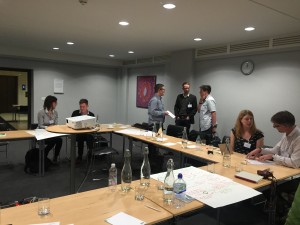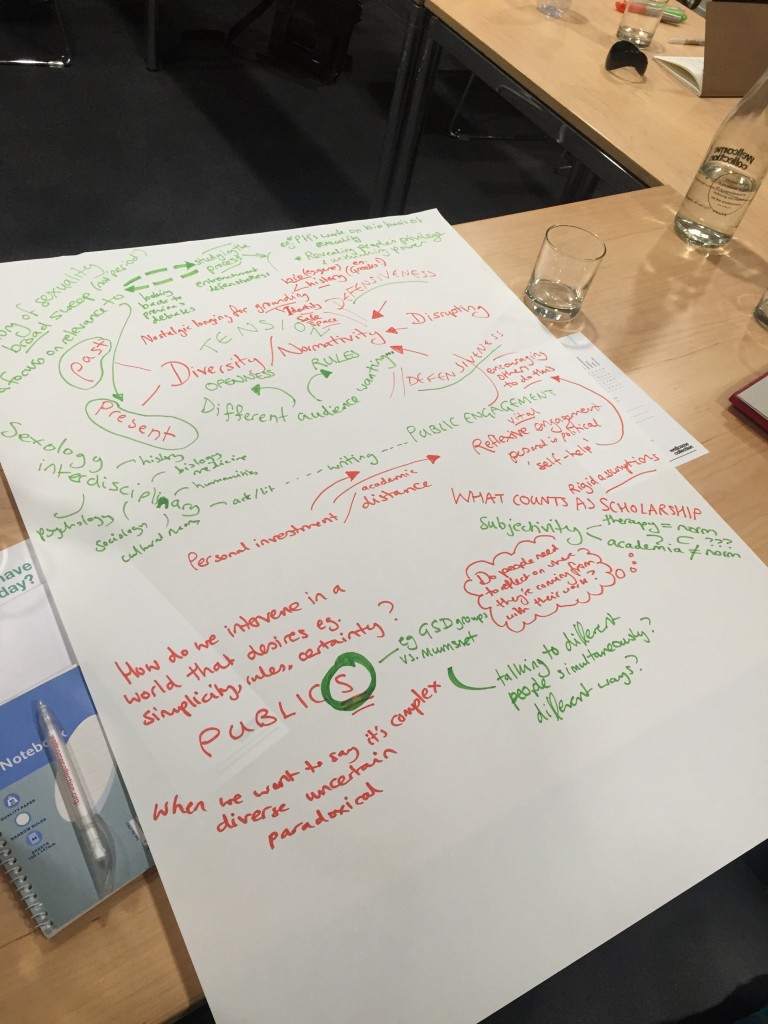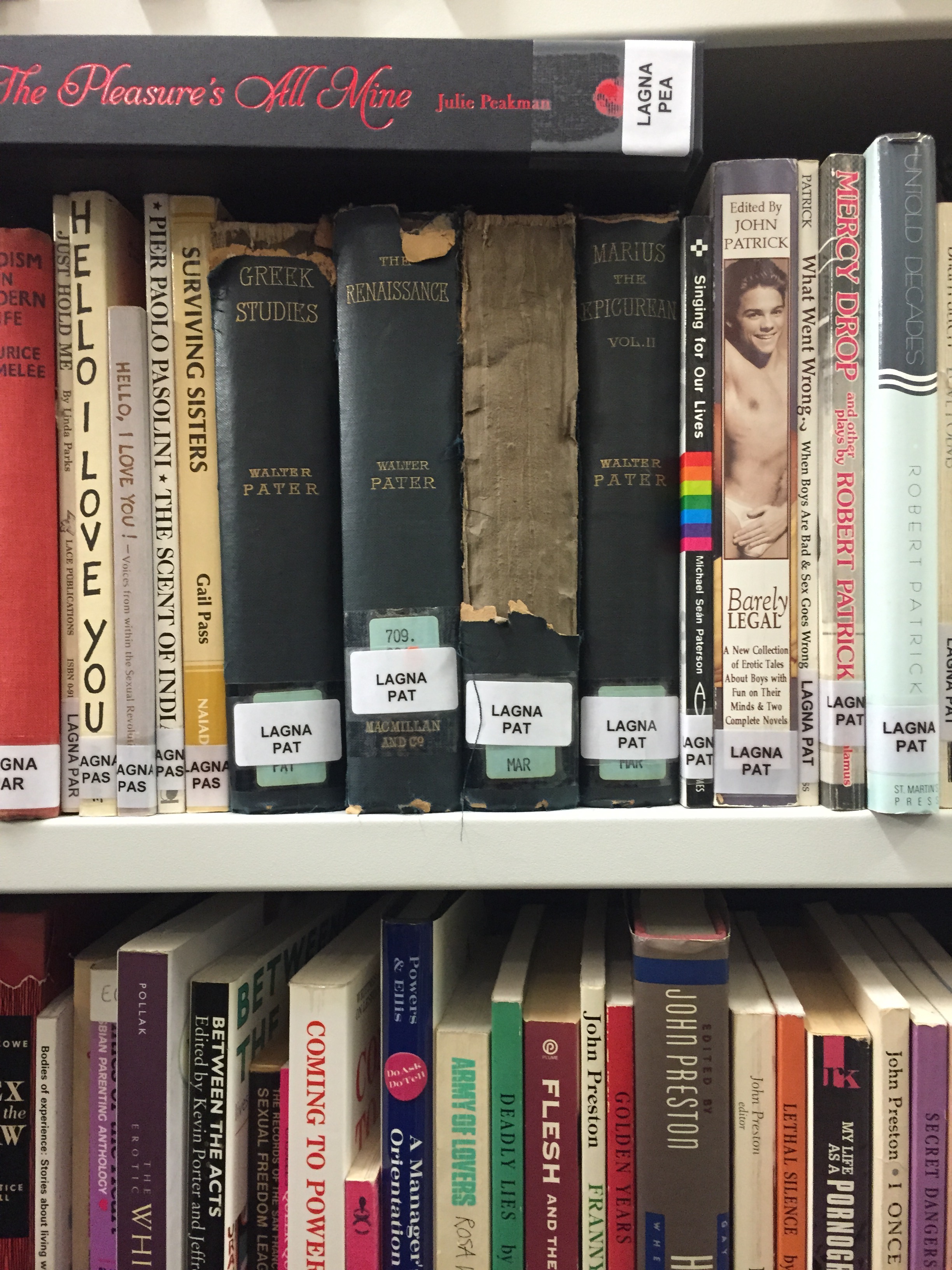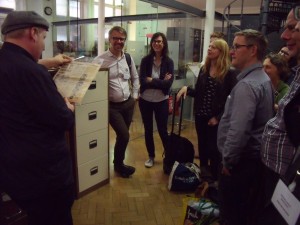Following on from our workshop at Berkeley, the Sexual Knowledge unit and the Rethinking Sexology project organised a second two-day workshop on Mapping Sexual Knowledge: Therapy, Knowledge and Authority in London on 7th and 8th September. The event was kindly hosted by Wellcome Trust and funded by the University of Exeter’s HASS Strategy. Our aim was to bring together scholars from a range of disciplinary perspectives across the humanities and social sciences, and practitioners in therapy and counselling, writers, artists and activists, all working in the area of sexuality and gender. We wanted to create dialogue about the construction and authorisation of different forms of knowledge about gender and sexuality (e.g. scientific, biomedical, pharmaceutical, political, literary, historical, spiritual), and specifically to explore historical and present-day perspectives on therapeutic approaches, for example, what counts as ‘ideal’ or ‘problematic’ conduct and behaviour or what are considered useful strategies to relieve, improve or cure particular issues.
Our participants included:
Katherine Angel (QMU, History)
Jason Barker (Artist and facilitator)
Meg John Barker (Open University, Psychology)
Dominic Davies (Therapist, Director of Pink Therapy)
David Griffiths (Sociology, University of Surrey)
Peter Hegarty (University of Surrey, History of Psychology)
Sebastian Matzner (KCL, Comparative Literature)
Naomi Rudoe (Westminster, Sociology)
On the first day of the workshop we focused on allowing our participants to introduce their varied expertise, interests, backgrounds, understandings and experiences in and around sexual knowledge, sexuality, gender, and sexual health and wellbeing. In small groups we explored the links between these concepts by creating diagrammatic ‘maps’ of our diverse approaches and interests and the connections between them. Key findings from this exercise were the group members’ shared interests in:
- The tools and methods for constructing and
 critiquing different types of sexual knowledge;
critiquing different types of sexual knowledge; - Identities and communities relating to gender and sexual diversity and how these have and continue to develop over time;
- The overlaps and the gaps between academic, scholarship, activism and public engagement in the context of sexual knowledge;
- Tensions between notions of diversity and equality, and between ideas about essentialism and the socially-contingent nature of practices, languages and meaning.
Our first day ended with a trip to the fascinating Bishopsgate Institute and a guided tour of their LGBT Collections. These include a large collection of books on LGBT history and fiction, and material recently transferred from the Lesbian and Gay Newsmedia Archive (LAGNA) – a collection of an estimated 250,000 press cuttings covering all aspects of LGBT experience from the late nineteenth century to the present day.
 Our second day began with a visit to the Wellcome Collection’s ‘The Institute of Sexology’ exhibition (November 2014-November 2015), which told the story of nineteenth- and twentieth-century ‘pioneers of the study of sex’ such as Magnus Hirschfeld, Marie Stopes, Alfred Kinsey and the team behind Natsal. The visit to the exhibition (whose display and public programme were contributed to by several of the workshop participants, including members of the Sexual Knowledge unit) was meant to encourage participants to consider public responses to the topic of sexuality and gender, as well as the relationship between academic research and non-academic audiences, in preparation for our workshop discussion on the theme of public engagement.
Our second day began with a visit to the Wellcome Collection’s ‘The Institute of Sexology’ exhibition (November 2014-November 2015), which told the story of nineteenth- and twentieth-century ‘pioneers of the study of sex’ such as Magnus Hirschfeld, Marie Stopes, Alfred Kinsey and the team behind Natsal. The visit to the exhibition (whose display and public programme were contributed to by several of the workshop participants, including members of the Sexual Knowledge unit) was meant to encourage participants to consider public responses to the topic of sexuality and gender, as well as the relationship between academic research and non-academic audiences, in preparation for our workshop discussion on the theme of public engagement.
This discussion included issues around the scope, length and breadth of engagements with the public, for example, the benefits and challenges of running ‘drop in’ workshops such as members of the group had delivered as part of the Wellcome exhibition in the gallery space. While highly accessible, this format lacks the facility to set group ground rules and create a ‘safe space’ at the beginning or to have a de-briefing at the end of the session, aspects which the group felt were important for dealing with topics around sexuality, gender, experiences and identities, especially in a one-0ff encounter. The group wondered how to package events to encourage fruitful discussions, while avoiding always ‘preaching to the converted.’ We considered how far we might want to go in trying to engage people with new and potentially challenging concepts around the norms, classifications and treatments of sexuality and gender, and the possible consequences of this.
The group conversation considered the interplay between academic research and public engagement, in particular how much a researcher might want to shape the experiences of non-academic communities and audiences they engage with. There was debate around how far we can engage with the public without a prepared narrative or prescriptive agenda. One model to work towards this was suggested based on the Transvengers project, which was led by participant Jason Baker and also involved Jana Funke. In this project, a group of young trans people engaged with Jana’s research on sexual science and trans history by putting questions to her which she answered while acting the roles of various sexual scientists. In this example of ‘Public Engagement on demand’ the young people acted as ‘participants’ (rather than ‘audience’) and directed the engagement through the questions they asked. We discussed to what extent our own agendas or personal politics must play a part in any therapeutic, pedagogic or other type of intervention around sexuality and gender, even while trying to be intentionally prescriptive.
The group also considered the public image of academics. For example, if academics are to carry out public engagement without imposing their own script as ‘expert’, is there anything at stake for professional identity? When, if ever, might they want to play the ‘expert’ card? We considered whether academics could or should push to be seen as more than ‘vessels of information’, for  example as skilled educators and facilitators? Can we ask the same sort of questions for the perceived divisions between artist, writer and therapist?
example as skilled educators and facilitators? Can we ask the same sort of questions for the perceived divisions between artist, writer and therapist?
The final topic of discussion centred around how we evaluate engagement around sexuality and gender with the public. Beyond statistics, how might we capture possibly ‘intangible’ effects or changes to wellbeing which our work might make? The psychological ‘before and after’ questionnaire was offered as one effective way in which we might measure how far participants’ ideas around, for example, identity, have been affected. The group agreed upon the value of the methods and approaches of social science for robustly evaluating impact on and change to people lives. The flexibility and creativity of sociologists and psychologists in working across disciplines, but also the openness to interdisciplinary working by all researchers, were seen as crucial in effectively measuring social and personal change.
